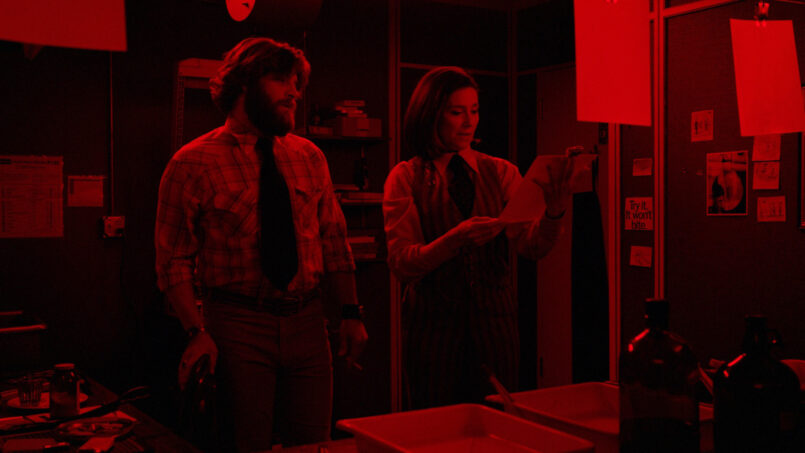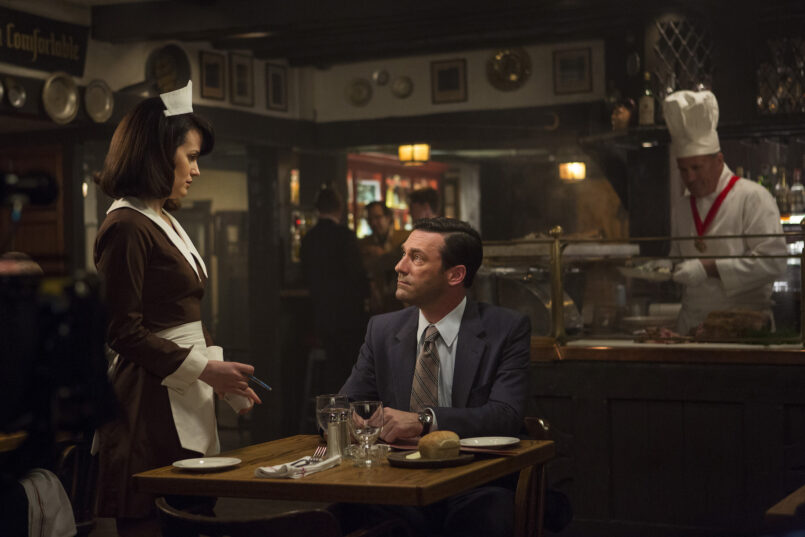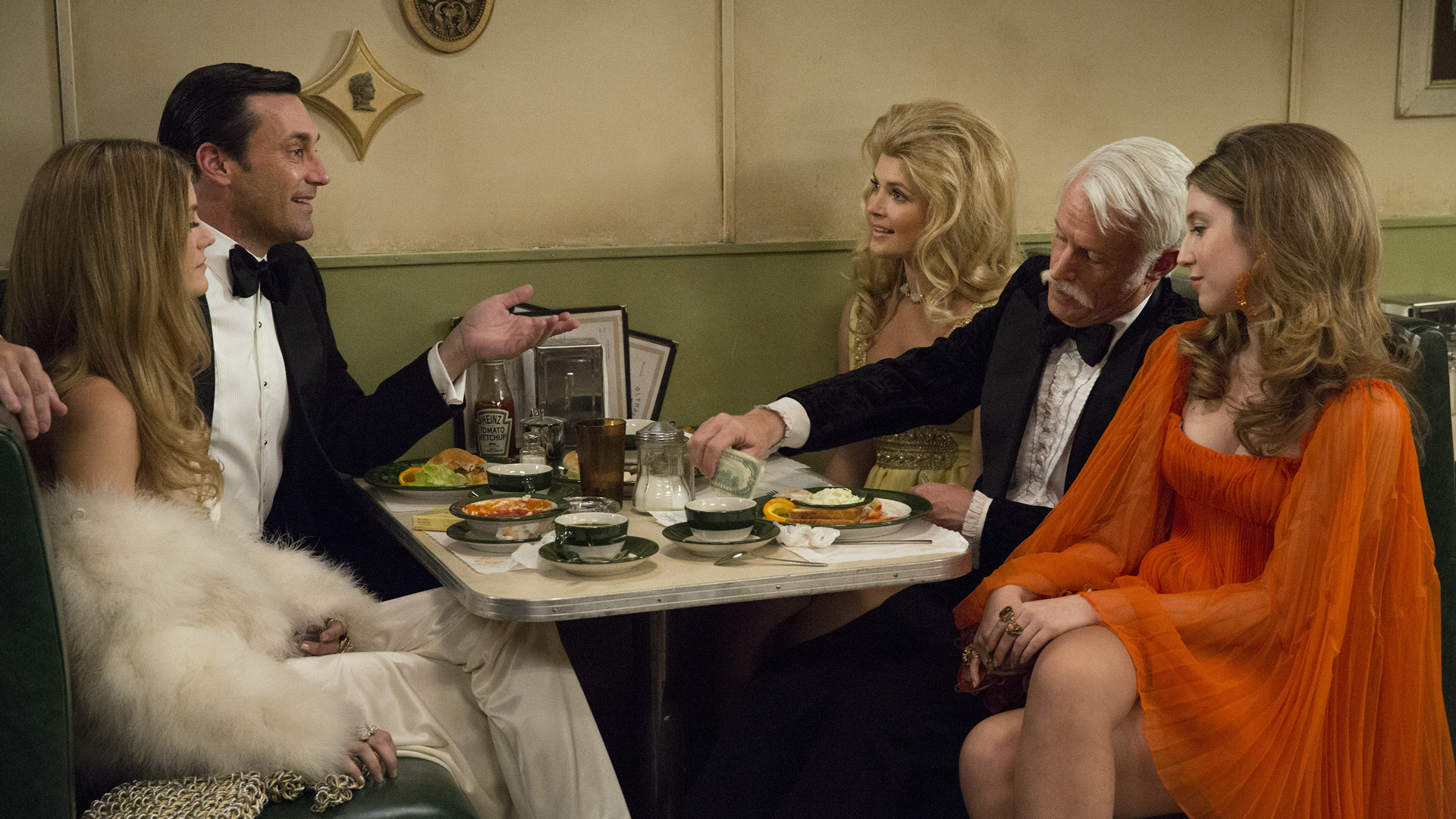Where can you go after you’ve conquered the moon? It seems that if you’re Matthew Weiner, the only answer is back down to earth. Fast-forward almost a year and it seems like the charm of our 1969 trip to the stars has worn off completely. Life goes on, the world still turns, and products still need to be sold. Cue Peggy Lee’s classic lament—Is that all there is?
The final half-season of Mad Men begins with SC&P avoiding Lee’s existential question at all costs. In the spring of 1970, the agency partners are richer, but just as empty as their non-millionaire colleagues, and no one seems to have a firm grasp on their sense of self. Until now, every client and pitch that the agency had was emotional and important, because it was always make or break for SC&P. But after making the deal of a lifetime with McCann Erickson, there hasn’t been anything to fight for, so everyone stopped fighting at all; Ted Chaough’s apathy for advertising—but desire for monetary success—has veered him off the (somewhat) moral path, while Pete Campbell is more than willing to forget his warm and fulfilling life in California for his 10% stake. Even the success and camaraderie that both Peggy and Joan worked so hard for was gone in an instant with one awful meeting.

photo courtesy of AMC
Within the lower ranks, the desire for creative fulfillment outside of the office has been keeping Stan and Ken centered. But now, instead of holding onto their dreams, both give into an unrewarding feeling of validation by a dark room quickie and a high-level Dow Chemical job, respectively, because it’s just easier than struggling for true happiness.
And that brings us to Don Draper—a man who’s made an entire career and life out of moving forward without looking back. Unlike the rest of his colleagues (and his normal MO for the entire series), Don’s trying to avoid his current state as a two-time divorcee by diving deeper into his past through oddly spiritual dreams, (actually true) childhood anecdotes, and a short-lived fling with a woman that could pass for any of Don’s old brunette flames—a quick jaunt back into his “happy” past without any of the baggage of real life.

photo by Justina Mintz/AMC
The glossy exterior of SC&P is exactly what got them to this comfortable point with flashier outfits and fatter paychecks, but it was the struggles and the growth of the tiny firm that defined them. Sterling Cooper had dreams of a being an agency with a car and an airline, but at this point the agency—and the country—has changed so much that it’s hard to define what SC&P even means. This is the muddled climate that each character is trying to navigate, no one ready to admit that they’re coasting to avoid redefining their lives for this impending era. But would you really want to face a future on Earth if you touched the stars and have moon dust on your shoes? FL







